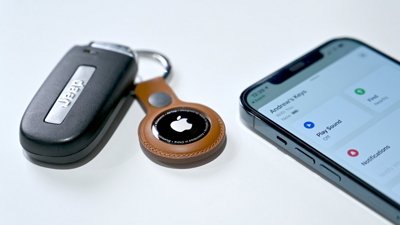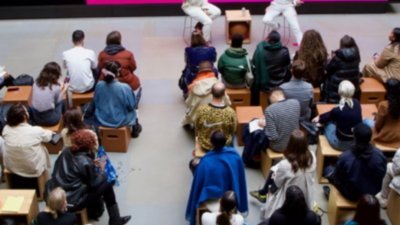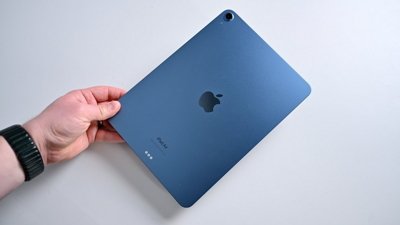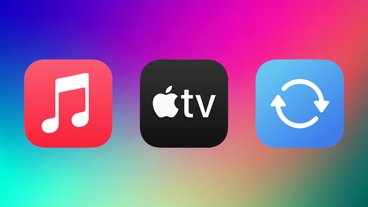Fortune reporter shares behind-the-scenes stories, photos of Steve Jobs
Schlender, who formerly worked at The Wall Street Journal and currently serves as a contributor to Fortune, first met Jobs during his "wilderness period" in 1987. Jobs had been bitterly ousted from Apple two years earlier.
"Jobs cultivated our relationship because he wanted to stay in the public eye in order to promote Next and Pixar and to rebuild his credibility as a business and technology savant," Schlender wrote in a piece for Fortune, adding that Jobs had also offered to exchange "intelligence" or provide a "back channel" on Apple.
Schlender noted that he and Jobs clicked because they had experienced "similar adolescent rites of passage" and shared "strikingly similar taste" in books, movies and music. But, even as friends, the fact that Schlender was "the reporter and Steve was the source and subject" always remained part of their interactions.
"I was the ink-stained wretch, and [Jobs] was the rock star. More than anything, he wanted to get his stories told to the biggest and best audience possible, and I could give him that," he said.
During interviews with Jobs, Schlender would try to "bump him out of keynote mode" in order to get his analysis on business, current events, popular culture and his personal life. In fact, Jobs' extemporaneous speeches were seen as so insightful that Schlender's editors at Fortune would often schedule business trips so they could spectate the interviews.
Steve Jobs reviewing the Mac OS X icon dock in 1999. Credit: Brent Schlender.
On one occasion, John Huey, who now serves as Time Inc's editor-in-chief, met up with Jobs and Schlender at Apple's Cupertino, Calif., headquarters to get the executive's advice on how to save AOL Time Warner. Jobs reportedly looked at them "incredulously" and said it was a waste of time "to look in the rearview mirror," before launching on a rant about the mismatch between AOL and Time Warner and AOL's outdated "postcard production values" for online content.
Huey then assumed that Jobs believed the company couldn't be fixed, but Jobs was quick to disagree. "I didn't say that. I know how you could fix it. I'm just not interested," he said.
Jobs then spontaneously sketched out a strategy for turning AOL into a media company, one that Schlender noted is "more or less the course AOL eventually followed, albeit with mixed success."
Schlender also related a time where he called Jobs the "graying prince of a shrinking kingdom" in an article and Jobs called him up to tell him it had "given him a good laugh."
On a personal note, Schlender recounted an instance where Jobs invited him to bring his two daughters over to his house to screen an rough cut of "Toy Story," Pixar's first feature film. After the movie finished, Job asked the children whether they thought it was as good as "Pocahontas" and "the Lion King."
"I won't be able to make up my mind until I see Toy Story five or six more times," Schlender's daughter replied.
In another anecdote, Jobs criticized Schlender's car as unsafe after a meeting in 1995 to discuss the possibility that Jobs and his "best friend," Oracle founder Larry Elilson, would purchase the then-beleaguered Apple.
"I sure hope you don't drive your kids around in that thing! I'm not joking. That car has no airbags. Get rid of it," Jobs reportedly said.
After returning to Apple in late 1996, Jobs offered Schlender several rare inside looks at Apple. The journalist said he was the only one "to observe how frighteningly temperamental [Jobs] could be during the final rehearsal for one of his Macworld keynote speeches." He also got a sneak peek at the first iPod several weeks before it was unveiled, as well as a first look at the iTunes Music Store before it opened.
But, Schlender's role as a journalist sometimes brought him into conflict with Jobs. When a 2001 Fortune cover story entitled "Inside the Great CEO Pay Heist" used Jobs as the cover image, he threatened to remove Apple's advertising from the magazine.
"He had a point, but in the end, he didn't ever hold a grudge. Not against me, at least," Schlender wrote.
The author also related a time when Jobs visited him in the hospital. Jobs visited him twice while Schlender was recovering from an illness, one time sharing "a joke about Bill Gates that shouldn't be repeated."
And, of course, Jobs had his own health complications. In 2008, Jobs was scheduled to participate in a roundtable discussion for a book Schlender was writing, but he called to cancel a week before it took place, sharing, off the record, that he was sick.
"I trust you not to say anything to anyone about why I'm canceling on you, but I'll tell you the truth. I really have to get to the bottom of my health problems once and for all," Jobs was quoted as saying. "I'm in no condition to meet with anyone and am going to go on an extended medical leave after Thanksgiving."
Schlender's aim in the piece was to express the conflicting legendary and human aspects of Jobs. He remarked that Jobs had "used himself up" in the process of "transforming all of our lives.
"Steve Jobs certainly was a living legend and a prima donna, as well as a journalist's dream interview," he concluded. "He could be a beguiling charmer when he wanted to be and a petulant whiner when things didn't go his way. He loved his family. Yes, he was larger than life, but life deserted him. In other words, he was as human as they come."
The writer's vignettes about Jobs dovetail with the just-released authorized biography on him. "Steve Jobs" by Walter Isaacson draws for 40 exclusive interviews with the former Apple CEO, as well as numerous interviews with family, friends, and rivals.
The book, available in a hardcover edition, a Kindle ebook, and on iBooks, is on track to become the top-selling book of 2011 for Amazon.com.
 Josh Ong
Josh Ong













 William Gallagher
William Gallagher
 Malcolm Owen
Malcolm Owen
 Amber Neely
Amber Neely

 Marko Zivkovic
Marko Zivkovic

 Andrew Orr
Andrew Orr








